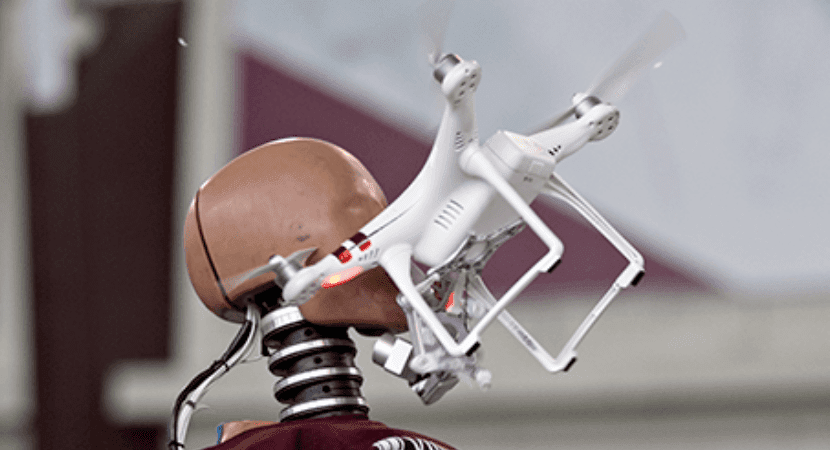
More and more people, with or without training, acquire a drone as a hobby, something totally legal and today even normal. The problem that more and more people buy some type of unit is that there are also more and more accidents that can occur, due to this in Virginia Tech They have decided to test their safety against the real possibility that they could hit a human.
The test carried out at this prestigious university consisted of something as simple as sitting a dummie in a chair 30 meters away from any drone weighing about 9 kilograms. It kicks into gear and heads straight for the dummie until it hits him on the head. The result of this test was nothing less than a injured neck and broken propeller fragments embedded in the face of the plastic doll.
Virginia Tech shows the results that a drone impact with the face of a human can cause.
Undoubtedly, this type of test reveals something that we are increasingly concerned about, such as the security that these types of machines can implement, especially if we take into account the possibility not that they impact on a plastic doll, but in any of us since, according to the results, a small or medium drone can seriously injuring and even killing a person So understanding and getting to avoid risk now is key.
According to declarations of Mark blanks, Director of the US Government Approved Drone Test Center at Virginia Tech:
What we need is to really understand at what level injuries can lead to death. When does the threshold cross an acceptable level?
For Earl lawrence, director of the Administration's Office for the Integration of Unmanned Aircraft Systems, for his part:
So many people are looking at these studies. The FAA needs our regulation to be supported, but so do all other civil aviation authorities and interest groups around the world. People want answers.
For its part, DJI Technology, one of the world's largest drone manufacturers, conducted a study on its own where they concluded that ships weighing up to 2,7 kilograms, including its famous Phantoms, pose minimal risk to people.